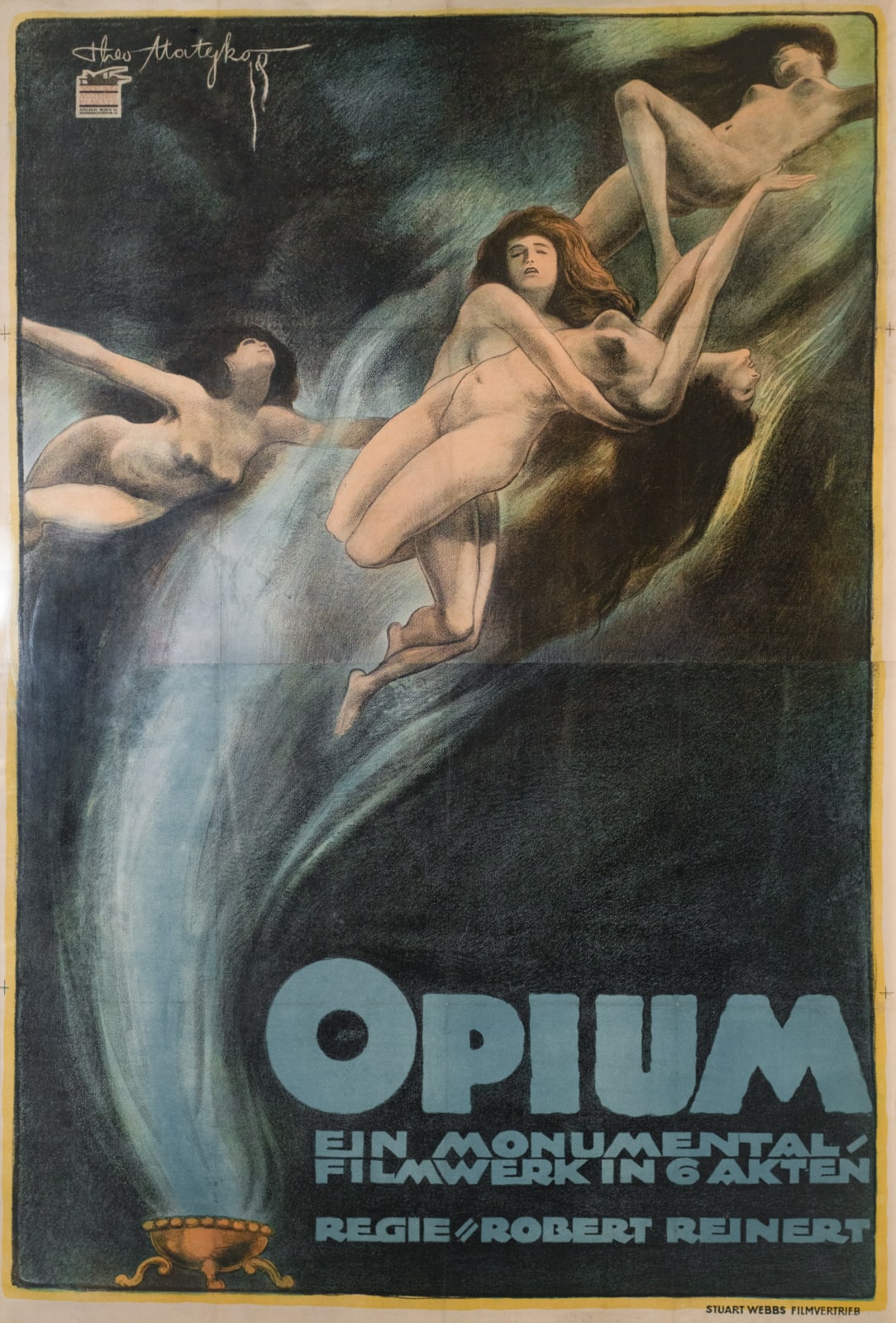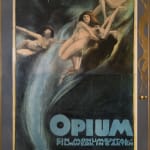Theo Matejko Austrian, 1893-1946
Further images
"In 1919, artist Theo Matejko created this lithograph for Robert Reinert's silent film Opium (starring Conrad Veidt, Werner Krauss, Friedrich Kuhne, Sybill Morel, and Eduard von Winterstein). The image is a masterpiece of German Weimar decadence!
This original film poster measures an astonishing 4 x 6 feet, and while hundreds may have been printed, they were pasted onto walls to advertise the film; today, the single copy known to have survived is housed in the Galerie Fledermaus archive.
The subtle, dream-like hallucinations of opium achieved infamy as an intoxicant well before Robert Reinert's silent film - Homer and Shakespeare romanticized the drug in verse; Keats, De Quincey, Freud, and Coleridge were addicts, and Mary Shelley wrote Frankenstein under its influence.
To combat civil unrest in war-decimated Germany at the end of World War I, the Council of Peoples Commissioners abolished the military censorship instigated at the outset of the Great War. Film studios took advantage of this new freedom, and there was a sudden increase in "Aufklarungsfilme" (enlightenment films) pretending to be concerned with social welfare.
The film Opium sold out for three solid weeks, proving that the public's ravenous pursuit of titillation and stimulation was not unlike the starved condition of an emaciated opium addict. In the film, addiction, murder, infidelity, and sexual abandon plague a European doctor's quest to use the medical benefits of opium without all the messy side effects.
Unsurprisingly, after a year of horrific shock films and thinly veiled pornography played to thoroughly attentive audiences throughout all the major theaters in Germany, the government stepped back in to firmly reinstate censorship in May of 1920." ~ Thomas Negovin









